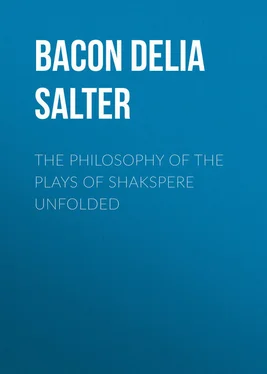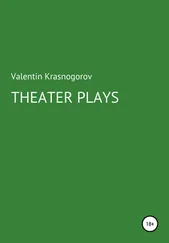Delia Bacon - The Philosophy of the Plays of Shakspere Unfolded
Здесь есть возможность читать онлайн «Delia Bacon - The Philosophy of the Plays of Shakspere Unfolded» — ознакомительный отрывок электронной книги совершенно бесплатно, а после прочтения отрывка купить полную версию. В некоторых случаях можно слушать аудио, скачать через торрент в формате fb2 и присутствует краткое содержание. Жанр: literature_19, foreign_antique, foreign_prose, на английском языке. Описание произведения, (предисловие) а так же отзывы посетителей доступны на портале библиотеки ЛибКат.
- Название:The Philosophy of the Plays of Shakspere Unfolded
- Автор:
- Жанр:
- Год:неизвестен
- ISBN:нет данных
- Рейтинг книги:3 / 5. Голосов: 1
-
Избранное:Добавить в избранное
- Отзывы:
-
Ваша оценка:
- 60
- 1
- 2
- 3
- 4
- 5
The Philosophy of the Plays of Shakspere Unfolded: краткое содержание, описание и аннотация
Предлагаем к чтению аннотацию, описание, краткое содержание или предисловие (зависит от того, что написал сам автор книги «The Philosophy of the Plays of Shakspere Unfolded»). Если вы не нашли необходимую информацию о книге — напишите в комментариях, мы постараемся отыскать её.
The Philosophy of the Plays of Shakspere Unfolded — читать онлайн ознакомительный отрывок
Ниже представлен текст книги, разбитый по страницам. Система сохранения места последней прочитанной страницы, позволяет с удобством читать онлайн бесплатно книгу «The Philosophy of the Plays of Shakspere Unfolded», без необходимости каждый раз заново искать на чём Вы остановились. Поставьте закладку, и сможете в любой момент перейти на страницу, на которой закончили чтение.
Интервал:
Закладка:
But to return to the point of digression. 'And this Pierre, or William, what is it but a sound when all is done? Or three or four dashes with a pen, so easy to be varied , that I would fain know to whom is to be attributed the glory of so many victories, to Guesquin , to Glesquin, or to Gueaguin . And yet there would be something more in the case than in Lucian that Sigma should serve Tau with a process, for "He seeks no mean rewards." The quere is here in good earnest. The point is , which of these letters is to be rewarded for so many sieges, battles, wounds, imprisonment, and services done to the crown of France by this famous constable. Nicholas Denisot never concerned himself further than the letters of his name , of which he has altered the whole contexture, to build up by anagram the Count d'Alsinois whom he has endowed with the glory of his poetry and painting . [A good precedent – but here is a better one.] And the historian Suetonius looked only to the meaning of his ; and so, cashiering his fathers surname, Lenis left Tranquillus successor to the reputation of his writings . Who would believe that the Captain Bayard should have no honour but what he derives from the great deeds of Peter (Pierre) Terrail, [the name of Bayard – "the meaning"] and that Antonio Escalin should suffer himself, to his face, to be robbed of the honour of so many navigations, and commands at sea and land, by Captain Poulin and the Baron de la Garde. [The name of Poulin was taken from the place where he was born, De la Garde from a person who took him in his boyhood into his service.] Who hinders my groom from calling himself Pompey the Great? But, after all, what virtue, what springs are there that convey to my deceased groom, or the other Pompey (who had his head cut off in Egypt), this glorious renown, and these so much honoured flourishes of the pen?' Instructive suggestions, especially when taken in connection with the preceding items contained in this chapter, apparently so casually introduced, yet all with a stedfast bearing on this question of names, and all pointing by means of a thread of delicate sounds, and not less delicate suggestions, to another instance, in which the possibility of circumstances tending to countervail the so natural desire to appropriate to the name derived from one's ancestors, the lustre of one's deeds, is clearly demonstrated.
''Tis with good reason that men decry the hypocrisy that is in war; for what is more easy to an old soldier than to shift in time of danger, and to counterfeit bravely, when he has no more heart than a chicken. There are so many ways to avoid hazarding a man's own person' – 'and had we the use of the Platonic ring, which renders those invisible that wear it, if turned inwards towards the palm of the hand, it is to be feared that a great many would often hide themselves, when they ought to appear .' 'It seems that to be known, is in some sort to a man's life and its duration in another's keeping . I for my part, hold that I am wholly in myself, and that other life of mine which lies in the knowledge of my friends, considering it nakedly and simply in itself, I know very well that I am sensible of no fruit or enjoyment of it but by the vanity of a fantastic opinion; and, when I shall be dead, I shall be much less sensible of it, and shall withal absolutely lose the use of those real advantages that sometimes accidentally follow it. [That was Lord Bacon's view, too, exactly.] I shall have no more handle whereby to take hold of reputation, or whereby it may take hold of me: for to expect that my name should receive it, in the first place, I have no name that is enough my own. Of two that I have, one is common to all my race, and even to others also: there is one family at Paris, and another at Montpelier, whose surname is Montaigne ; another in Brittany, and Xaintonge called De la Montaigne . The transposition of one syllable only is enough to ravel our affairs, so that I shall peradventure share in their glory, and they shall partake of my shame; and, moreover, my ancestors were formerly surnamed Eyquem , a name wherein a family well known in England at this day is concerned. As to my other name, any one can take it that will , and so , perhaps, I may honour a porter in my own stead. And, besides, though I had a particular distinction myself, what can it distinguish when I am no more . Can it point out and favour inanity?
But will thy manes such a gift bestow
As to make violets from thy ashes grow?
'But of this I have spoken elsewhere.' He has – and to purpose.
But as to the authority for these readings, Lord Bacon himself will give us that; for this is the style which he discriminates so sharply as 'the enigmatical ,' a style which he, too, finds to have been in use among the ancients, and which he tells us has some affinity with that new method of making over knowledge from the mind of the teacher to that of the pupil, which he terms the method of progression – (which is the method of essaie ) – in opposition to the received method, the only method he finds in use, which he, too, calls the magisterial . And this method of progression, with which the enigmatical has some affinity, is to be used, he tells us, in cases where knowledge is delivered as a thread to be spun on, where science is to be removed from one mind to another to grow from the root , and not delivered as trees for the use of the carpenter, where the root is of no consequence. In this case, he tells us it is necessary for the teacher to descend to the foundations of knowledge and consent , and so to transplant it into another as it grew in his own mind, 'whereas as knowledge is now delivered, there is a kind of contract of error between the deliverer and the receiver, for he that delivereth knowledge desireth to deliver it in such a form as may best be believed , and not as may best be examined : and he that receiveth knowledge desireth rather present satisfaction than expectant inquiry , and so rather not to doubt than not to err, glory making the author not to lay open his weakness, and sloth making the disciple not to know his strength .' Now, so very grave a defect as this, in the method of the delivery and tradition of Learning, would of course be one of the first things that would require to be remedied in any plan in which ' the Advancement ' of it was seriously contemplated. And this method of the delivery and tradition of knowledge which transfers the root with them, that they may grow in the mind of the learner, is the method which this philosopher professes to find wanting, and the one which he seems disposed to invent. He has made a very thorough survey of the stores of the ancients, and is not unacquainted with the more recent history of learning; he knows exactly what kinds of methods have been made use of by the learned in all ages, for the purpose of putting themselves into some tolerable and possible relations with the physical majority; he knows what devices they have always been compelled to resort to, for the purpose of establishing some more or less effective communication between themselves and that world to which they instinctively seek to transfer their doctrine. But this method, which he suggests here as the essential condition of the growth and advancement of learning, he does not find invented. He refers to a method which he calls the enigmatical, which has an affinity with it, 'used in some cases by the discretion of the ancients,' but disgraced since, 'by the impostures of persons, who have made it as a false light for their counterfeit merchandises.' The purpose of this latter style is, as he defines it, 'to remove the secrets of knowledge from the penetration of the more vulgar capacities, and to reserve them to selected auditors , or to wits of such sharpness as can pierce the veil.' And that is a method, he tells us, which philosophy can by no means dispense with in his time, and 'whoever would let in new light upon the human understanding must still have recourse to it.' But the method of delivery and tradition in those ancient schools, appears to have been too much of the dictatorial kind to suit this proposer of advancement; its tendency was to arrest knowledge instead of promoting its growth. He is not pleased with the ambition of those old masters, and thinks they aimed too much at a personal impression, and that they sometimes undertook to impose their own particular and often very partial grasp of those universal doctrines and principles, which are and must be true for all men, in too dogmatical and magisterial a manner, without making sufficient allowance for the growth of the mind of the world, the difference of races, etc.
Читать дальшеИнтервал:
Закладка:
Похожие книги на «The Philosophy of the Plays of Shakspere Unfolded»
Представляем Вашему вниманию похожие книги на «The Philosophy of the Plays of Shakspere Unfolded» списком для выбора. Мы отобрали схожую по названию и смыслу литературу в надежде предоставить читателям больше вариантов отыскать новые, интересные, ещё непрочитанные произведения.
Обсуждение, отзывы о книге «The Philosophy of the Plays of Shakspere Unfolded» и просто собственные мнения читателей. Оставьте ваши комментарии, напишите, что Вы думаете о произведении, его смысле или главных героях. Укажите что конкретно понравилось, а что нет, и почему Вы так считаете.












